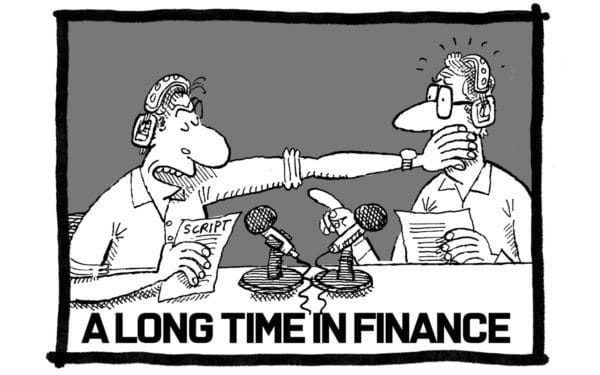A personal view from Ian Stewart, Deloitte’s Chief Economist in the UK. Subscribe to & view previous editions at: http://blogs.deloitte.co.uk/mo
The behaviour of the equity market provides useful signals about where investors think the global economy is heading. As we move into the second half of 2018 here’s our mid-year assessment of what equity markets are telling us.
The biggest change is in investors’ attitude to risk. In 2016 and 2017 investors made money investing in riskier assets. Emerging market equities soared and as confidence spread about the Europe’s recovery, so, too, did euro area markets. Caution has returned this year and outside the US the returns on equities have been meagre to negative. Globally equities are down 8% from their January peak.
US stocks have done better, returning 6% this year. The star performers have been tech and retail, up 14% and 20% respectively, supported by robust consumer demand. (Checking the numbers, I am kicking myself for not buying Netflix stock at the time I subscribed to their service. Shares have doubled in value this year and have risen ten-fold in the last five years).
Still, the overall performance of the US equity market, up 6% this year, looks paltry against the 22% return in 2017, especially given that the American economy is enjoying a tax-cut fuelled boom and profits are soaring (in the first quarter corporate profits rose 24%).
US equities have faced headwinds from the Federal Reserve’s tightening of monetary policy and the imposition of import tariffs by the Trump Administration. Ironically the effects have been felt more outside the US than within it.
Higher rates have led to an outflow of capital from emerging markets in search of higher returns in the US. This has put downward pressure on emerging market currencies and equities. For China, with its high levels of export to the US, these effects have been reinforced by growing trade tensions. Renminbi-denominated equities on the Shanghai stock exchange have fallen 14% so far this year.
Caterpillar and Komatsu, two major manufacturers of construction and earth moving machinery, benefitted from the bounce in emerging market and global growth in 2016 and 2017. But this year their shares have lost ground as uncertainties about prospects for emerging markets have mounted.
The threat of protectionism has also weighed on Germany’s powerful export sector, with German equities 10% down from their January peak. Shares in Daimler, manufacturers of Mercedes, and Volkswagen, have lost a quarter of their value over the same time.
Bank shares, one of the largest equity sectors, have suffered from the prospect of monetary tightening. Since they tend to borrow at short rates and lend long, rising interest rates squeeze bank margins. Bank shares have underperformed wider equity markets this year, most strikingly in Germany where they are down by almost 40% from January’s peak.
If this all sounds rather gloomy I would emphasise that we’re looking here at returns this year. If you glance at a five or ten year chart, things look great. This year’s sell off from the January peak is trivial in comparison with the major corrections of the early 2000s and 2008/09. And, of course, some sectors are going up. The oil majors are generally doing well as a result of high oil prices. And more defensive sectors, those investors turn to when things are more uncertain, including health care, utilities, pharmaceuticals and biotechnology, have been outperforming.
Perhaps surprisingly, the UK, where growth has slowed and Brexit uncertainties reign, has seen a marginally better stock market performance this year than the euro area. This has a lot to do with the falling value of the pound, which raises reported earnings for UK based multinationals with dollar income. But the gains for UK equities are hardly exciting. So far this year the FTSE 100 is up 2.4%.
In currency markets the main story has been the rise of the dollar, buoyed by strong US growth and monetary tightening. Emerging market currencies have been the big casualties. So far this year the rand, rouble and Indian rupee are down about 8% against the dollar, the Brazilian real has fallen by 15% and the Turkish lira is off by 20%.
In 2017 it was almost hard not to make money in equity markets. The price of pretty much everything rose. It’s been a different story this year. Rising US interest rates and an escalating tide of tariffs make for a more challenging environment for equities – and for global growth.



